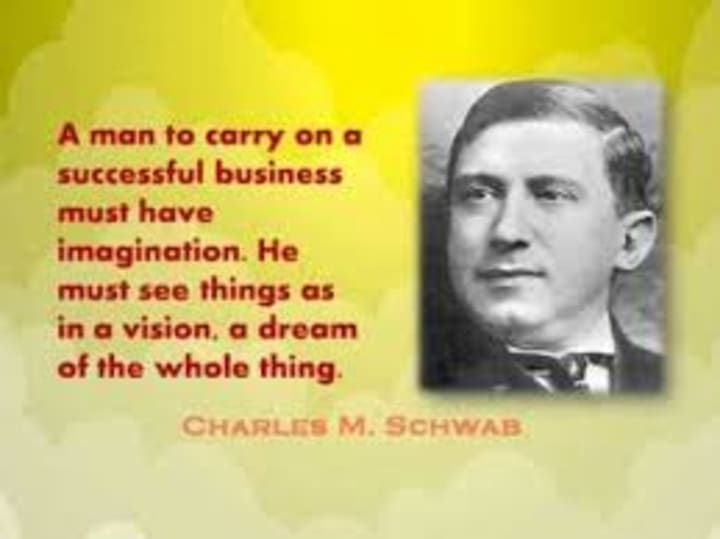WHAT CAN EMPLOYERS LEARN FROM CHARLES MICHAEL SCHWAB, MARK ZUCKERBURG, STEVE JOBS AND OTHER HIGHLY SUCCESSFUL PEOPLE WHO DIDN’T COMPLETE COLLEGE?
Using Leadership and Motivational Skills for Improved Productivity

Introduction
In today's job market, job advertisements often emphasize specific academic qualifications and several years of work experience as the most important criteria for selecting the right candidate. However, despite this being an easy way to screen and select job applicants, an analysis of past and current successful people shows that this approach may not be the best approach.
The employer's aim is to find an employee who will add value to the organization and make it reach its goals more easily. However, experience shows that employees hired based on academic qualifications and years of experience alone often do not add enough value to make the organization shine. Many successful people have proven that academic qualifications and work experience are not the only factors that determine success in the workplace. Companies that focus solely on these criteria may be missing out on valuable candidates who possess other skills and qualities that could benefit their organization.
On the other hand, employees hired based on other criteria, especially influence and leadership abilities, regardless of their academic qualifications and work experience, add great value to the organization and make it shine.
The Power of Leadership and Motivational Skills
Leadership and motivational skills are critical for success in any workplace. Leaders who possess these skills are able to inspire and motivate their teams to achieve their goals, even in challenging situations.

Let's take the example of Mr. Charles Schwab. He was born in 1862 in Williamsburg, Pennsylvania and died in 1939. Charles Schwab did not complete college education. After attending St. Francis College (now called St. Francis University) for two years, he dropped out and headed to Pittsburgh to look for work.
One of Charles Schwab's great qualities was his great ability to influence people. Due to his great ability, in 1897 at the age of 35, he was made President of Carnegie Steel Company. In 1901, he helped facilitate the secret negotiations for the sale of this company, which was sold to a group of New York investors led by J.P. Morgan. The company was renamed U.S. Steel Corporation, and Charles Schwab became its first President.
However, in 1903, Charles Schwab left U.S. Steel after a disagreement with Morgan and joined Bethlehem Shipbuilding and Steel Company. Under his leadership, this company grew rapidly and became the second largest steel company in the world. Due to his great ability, by the early 1920s, Charles Schwab was among the highest-paid people in the world. According to Dale Carnegie, a famous author of relationship self-help books, at that time Charles Schwab was paid a salary of one million dollars a year, equivalent to 3,000 dollars a day!
Charles Schwab's success was not solely based on his academic qualifications and work experience, but on his ability to influence and lead people effectively. His leadership qualities were evident in his approach to motivating his employees. He believed in giving praise directly to the person who did well, rather than matching individual performance with company performance. This belief made his employees innovative and dedicated because they knew that their efforts would pay off at the end of the day.
Charles Schwab's approach to leadership has important lessons for today's employers. Employers can learn that leadership qualities, such as the ability to influence and motivate people, are just as important as academic qualifications and work experience. By looking beyond these traditional criteria, employers can identify candidates who possess other skills and qualities that could benefit their organization.
In addition to Charles Schwab, other successful people have shown that academic qualifications and work experience are not the only factors that determine success in the workplace. For example, Steve Jobs was a college dropout who founded Apple, one of the most successful companies in the world. Jobs had a vision and was able to inspire and motivate his team to achieve that vision. His success was not based on his academic qualifications or work experience, but on his ability to think creatively and lead effectively.

Similarly, Mark Zuckerberg, the founder of Facebook, dropped out of college to pursue his dream of creating a social networking platform. Zuckerberg's success was not based on his academic qualifications or work experience, but on his ability to think outside the box and create something that changed the way people interact online.

Employers can learn from these examples that academic qualifications and work experience are not the only factors that determine success in the workplace. Employers should look for candidates who possess other skills and qualities, such as creativity, leadership, and the ability to think outside the box. By doing so, they can identify candidates who have the potential to make a real difference in their organization.
Conclusion
In conclusion, employers can learn valuable lessons from highly successful people like Charles Michael Schwab, Mark Zuckerberg, Steve Jobs, and others who did not complete college. These individuals have shown that academic qualifications are not the only factors that determine success in the workplace. Employers should focus on skills and potential, encourage innovation, foster a culture of collaboration, invest in employee development, and emphasize the importance of leadership. By doing so, they can identify and develop employees who have the potential to make a real difference in their organization.
About the Creator
Juma Killaghai
Juma Killaghai is a research chemist with over 30 years of experience in the field of research and development. He has a Master’s degree - Organic chemistry, from the University of Dar es Salaam. He resides in Dar es Salaam, Tanzania






Comments
There are no comments for this story
Be the first to respond and start the conversation.